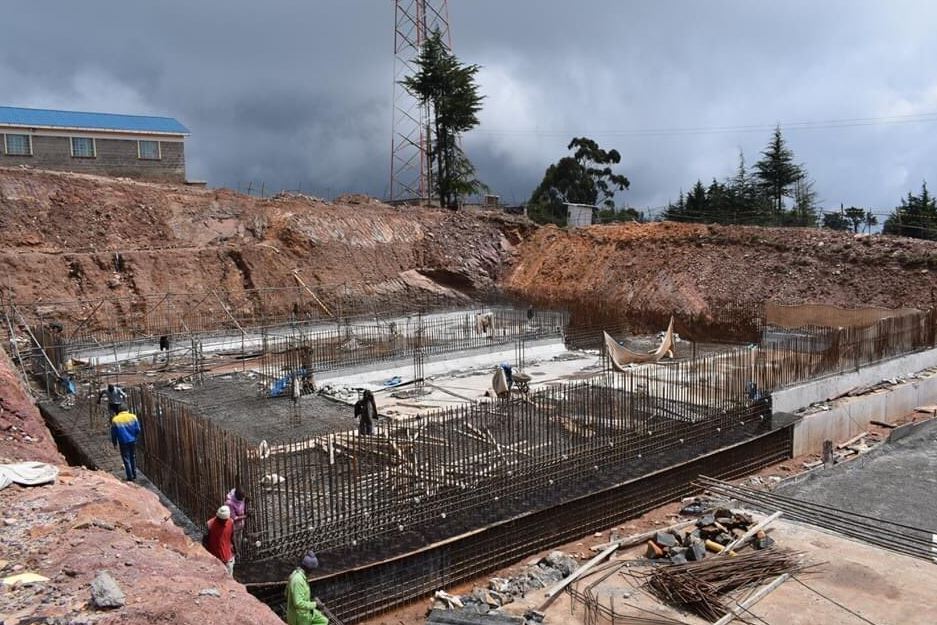We recently sat down with accomplished Engineer and businessman Antony Ng’ang’a Mwaura.
He is the managing director of Toddy Civil Engineering Company Limited – a Kenyan engineering company that has been responsible for many great projects across the country.
In less than 2 decades, the company has grown into one of the biggest in the country in terms of project portfolio, most of them revolving around water and sewerage works.
It was great hearing from the mind of a Kenyan success story.

Introduce yourself
I am family man, a die-hard entrepreneur at heart, Managing Director at Toddy Civil Engineering Company Limited.
How did you get started as an engineer?
I ventured into engineering in 2002, when I first registered Toddy Civil Engineering as a sole proprietorship. The business had a small base of operations in Karatina, with only two employees.
The business grew exponentially, necessitating that it was changed to a company. It was later incorporated as a limited company under the Companies Act in the year 2008.
You seem to have a particular passion for education, why is that?
I strongly believe that education is key to transform the country into an industrialized, middle-income economy. The role of technical and vocational education is very significant to achieve the aspiration and hope of the nation.
Despite remarkable progress in education and economic development, most children from remote regions and disadvantaged backgrounds are less likely to go to or complete school.
I believe that my intervention will go a long way in providing a quality education for all children—and significantly so in gender equality.
What do you think should be done to have more women in technical careers?
As it has been undoubtedly said before, women are the largest untapped reservoir of talent in the world.
However, the STEM field has evidently been a predominantly male-dominated industry. In order to resolve the STEM gender imparity, the problem must be tackled from all fronts, and that includes schools, organizations, research institutions and the companies themselves.
Women must be advised to take up technical courses.
The imbalance in terms of the courses taken by female students further creates disparity in the types of jobs held by women.
What do you love most about your job?
Civil engineering involves coming up with simple solutions for complex societal problems and challenges in terms of infrastructure and amenities. It is very fulfilling when these solutions transform the community, and the country at large.
Working in the civil engineering field, I really enjoy the moments where I get a problem and have no clue what to do. I then have to spend the majority of my day problem solving from scratch, and coming up with a solid solution that I am comfortable having other engineers dissect.
As an entrepreneur, I can work my own hours, wherever I feel like working, and set my own goals and responsibilities.
What motivates you?
Personally, I am more driven to become successful in business because of the sense of personal achievement it provides.
The key to staying motivated as an entrepreneur is remembering why you embarked on your journey in the first place.
When I am certain that my effort to transform the society are not in futility, it really gives me the energy to keep pushing through the long days.
What are the main challenges of starting and running a business in Kenya today?
Small and Medium enterprises popularly known as SMEs are engines of growth, vital to most economies.
When I started Toddy Civil Engineering in 2002, I had a great financial challenge. Financial institutions don’t always make it easy for small businesses to secure loans. As a matter of fact, most startups might not have security for the loans, making it difficult for money lenders to give them loans.
Lack of advanced technology in production methods has become a hindrance to high output levels and reduced production costs. This has made most businesses in Kenya not to flourish and participate in regional trading due to low quality output.
With only 10 years to 2030, do you think Kenya is on track to fulfill its Vision 2030, particularly infrastructure-wise?
Despite a number of hurdles that may interfere with some key pillars I believe that Kenya is still on track to achieve its long-term development objectives outlined in the development blueprint.
What advice do you have for aspiring entrepreneurs?
Many people dream of starting their own business and this should be encouraged because it can be a highly rewarding venture and a way to make a living.
Aspiring entrepreneurs must be willing to take risks, but these should always be researched and calculated risks. Be brave, believe in yourself and have a vision which has always been carefully designed to find success in business and all areas of your life.
What we should all be aware of is, entrepreneurship is extremely demanding, especially in the early stages of growth.






